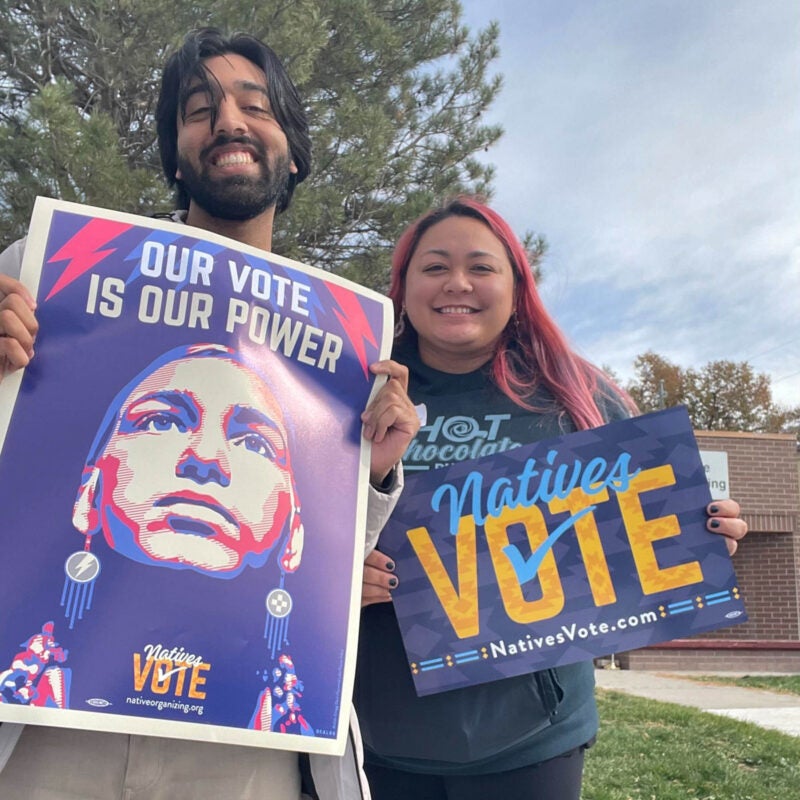Whether you are delighted or disappointed with the results of this year’s presidential election, there is one fact that should have us all breathing a sigh of relief — that millions of people across the United States cast their votes and learned the results without widespread controversy.
And for that, we can partially credit the countless, unsung Election Day volunteers — including 27 members of the Harvard Law School community — who worked tirelessly to ensure that all American citizens could make their voices heard.
“The presence of poll monitors on Election Day not only helps voters get the assistance they need to exercise their right to vote, but can assure people across the country that an election was free and fair, and they should accept the results,” says Ruth Greenwood, the clinic’s director.
On November 5, a group of Harvard Law students, faculty, and staff traveled to Nevada to work as nonpartisan poll monitors for Tribal Nations. Organized by the Election Law Clinic at Harvard Law School and the Native American Rights Fund, otherwise known as NARF, the volunteers had a simple, but vital role: to ensure that everyone who wanted to vote — and was eligible to do so — could.
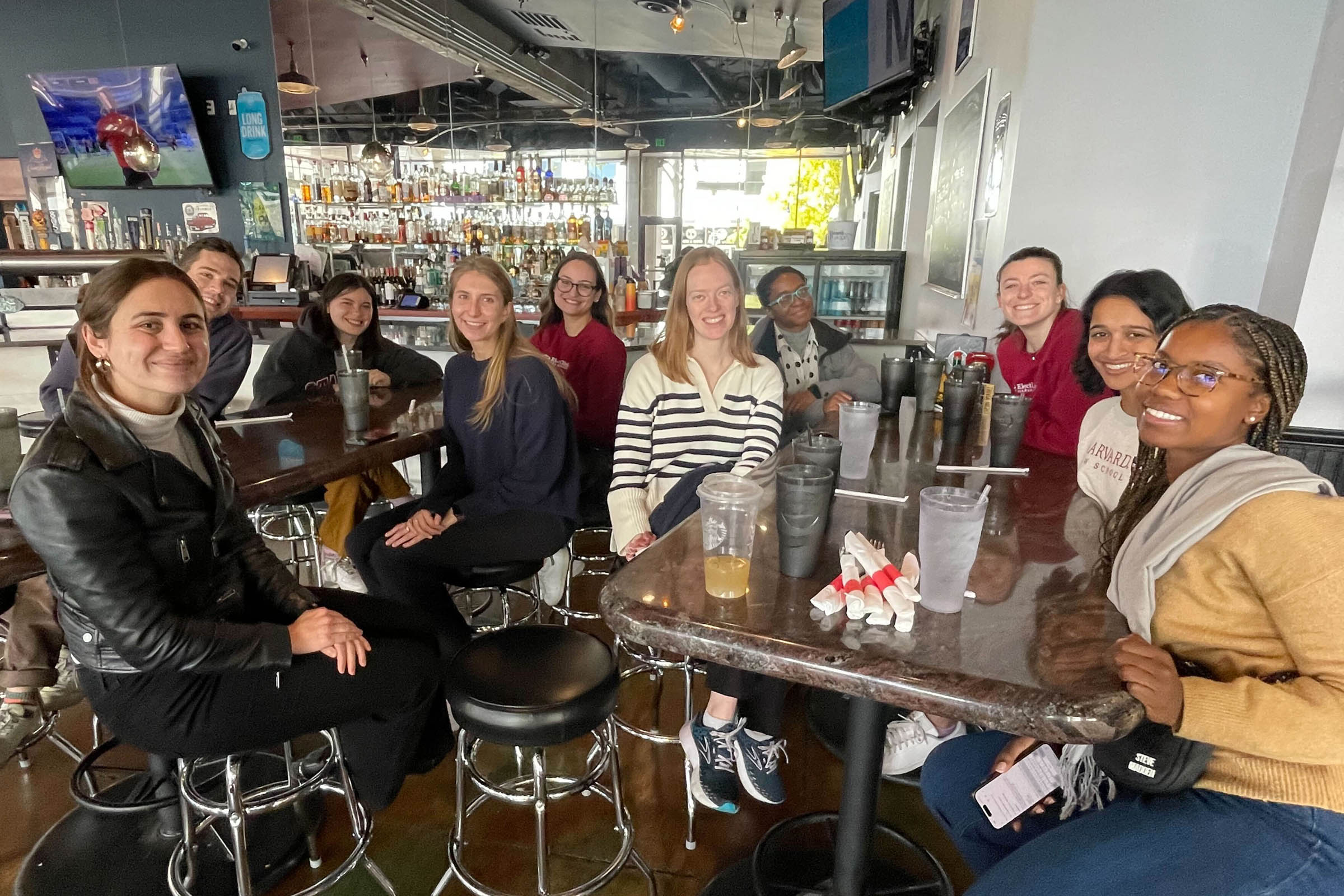
This was a particularly significant year for Native voters in Nevada, says Andie Dobson-Forsee ’21, a litigation associate at Mehri & Skalet, which supported her participation on Election Day. Dobson-Forsee says the state recently passed a law guaranteeing tribes a polling location on their land by right.
“Previously, tribes had been able to request a site, but it could be refused,” she explains. “For NARF, I think it was really important this year to have people on the ground at some of these polling places, especially the new ones, just to make sure that everything was running well and smoothly.”
Maryanne Tomazic says she became involved to support voting rights — especially for Indigenous Americans. “Native Americans face barriers with voting, including structural factors, such as accepting tribal I.D.s or having different forms of residential addresses, or having to travel far to get to a polling place,” she says.
As a clinical instructor in the Health Law and Policy Clinic, Tomazic believes voting is one of the most important ways people can have an impact on policies that matter, such as public health.
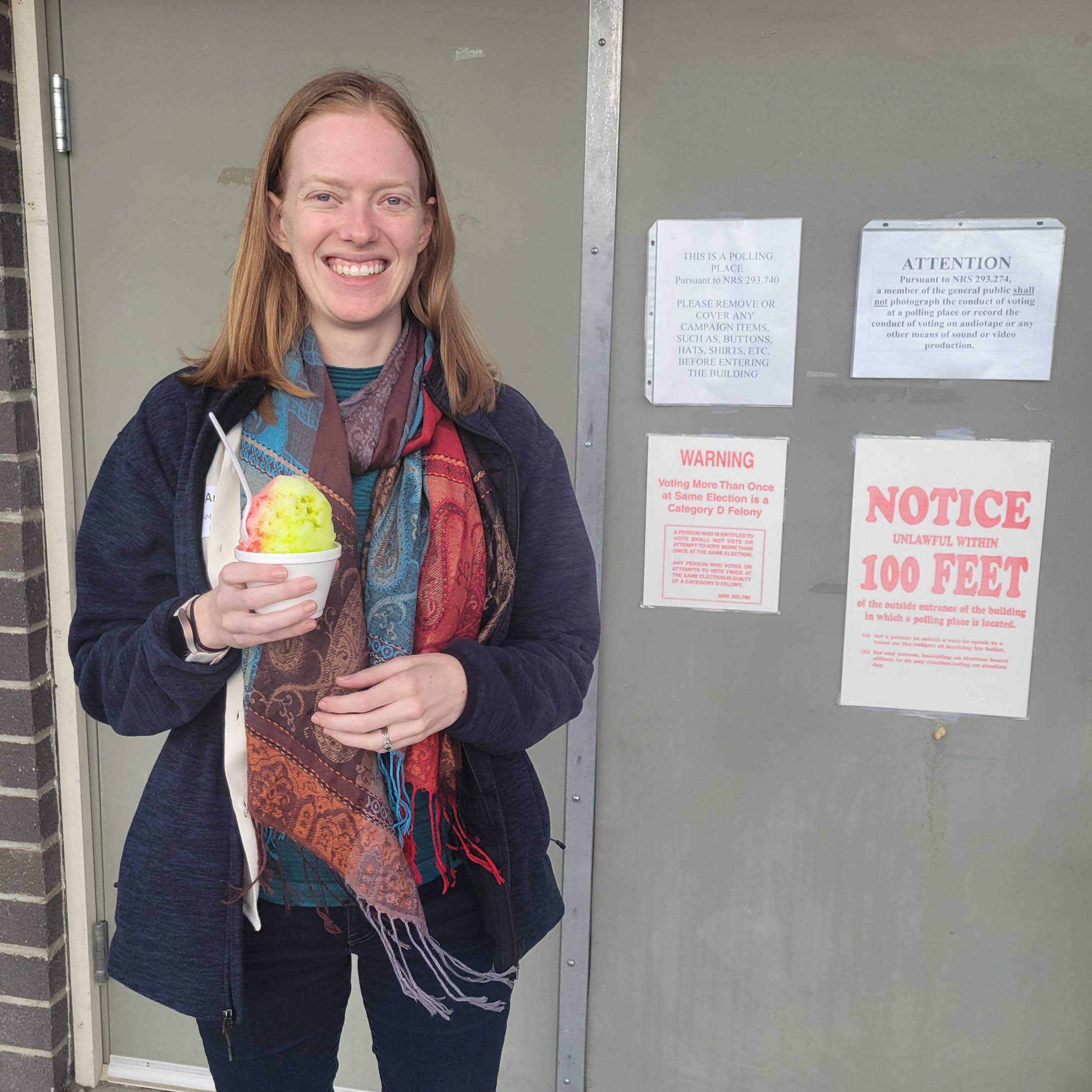
“Native Americans have one of the lowest life expectancies at birth among all racial and ethnic groups, and they are more likely to die from chronic diseases than their peers,” she says. “A lot of health policy starts at the granular level — it starts with a person’s vote.”
Taylor Diggs ’26 says she initially wanted to volunteer because she worried the election might become contentious. Nonpartisan poll monitors are critical to protecting voters’ rights, especially in marginalized communities, she adds. “Everyone involved with the Election Law Clinic has a commitment to free and fair bipartisan election actions.”
And what better place to do that but at the ground level, says Lucy Sun ’26. “The Election Law Clinic prioritizes work in the community, something that I care a lot about as well,” Sun says. “When an opportunity came to be able to go into a community and be a part of Election Day and help the election run, I knew I had to be part of it.”
‘It’s important … that we have transparency’
Before heading to Nevada, NARF offered trainings on state election law and poll monitoring. The volunteers learned how to answer common questions, such as whether voters can show their tribal I.D. to cast their ballot (they can), and how to ensure access for all people, including those with disabilities or who speak another language. They also learned when to escalate larger issues to election officials.
And just as importantly, says Diggs, the group received lessons on Native American history and on past efforts to suppress the votes of American Indians. “For NARF, it was very important that there was cultural awareness going into these communities, and that is important to the Election Law Clinic as well,” she says.
On Election Day, the volunteers were assigned to polling locations across the state — from larger areas near Reno, to rural communities such as Lovelock, a town of just 1,800 people.
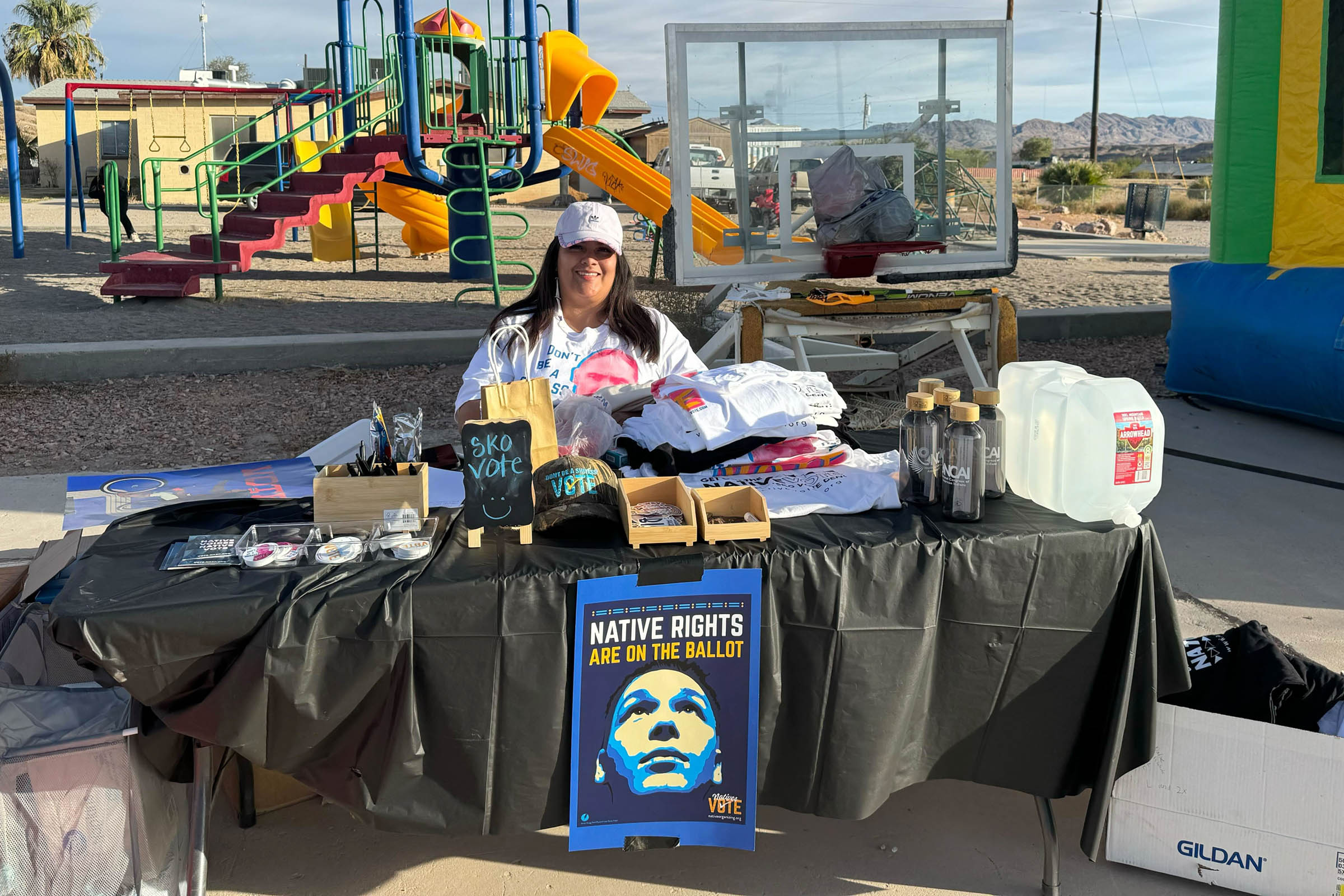
Like the other volunteers, Dobson-Forsee says the day went off with few hiccups at her location. If someone turned up but was unable to vote, she or another volunteer would meet them outside the polling place to understand what went wrong and see if there was a way to address the issue. But she notes that she and her fellow poll monitors were not the only ones working hard for voters on Election Day.
“I especially want to give credit to the election workers that we worked with, because they were already working hard on these issues,” she says. “They were calling their supervisors, and they were really trying to make sure everyone eligible to vote was able to do so.”
In addition to supporting voters, Tomazic says the presence of nonpartisan poll monitors can help assure the public that an election is being conducted openly and fairly. “I think it’s really important that we have transparency within our government structures, and poll monitoring is, in my mind, an exercise of that,” she says.
Diggs says she enjoyed getting an upfront view of the mechanics of the election — the very basics of how ballots are filled out, inserted, and counted. Perhaps if people better understood the process, she continues, there might be less election denialism.
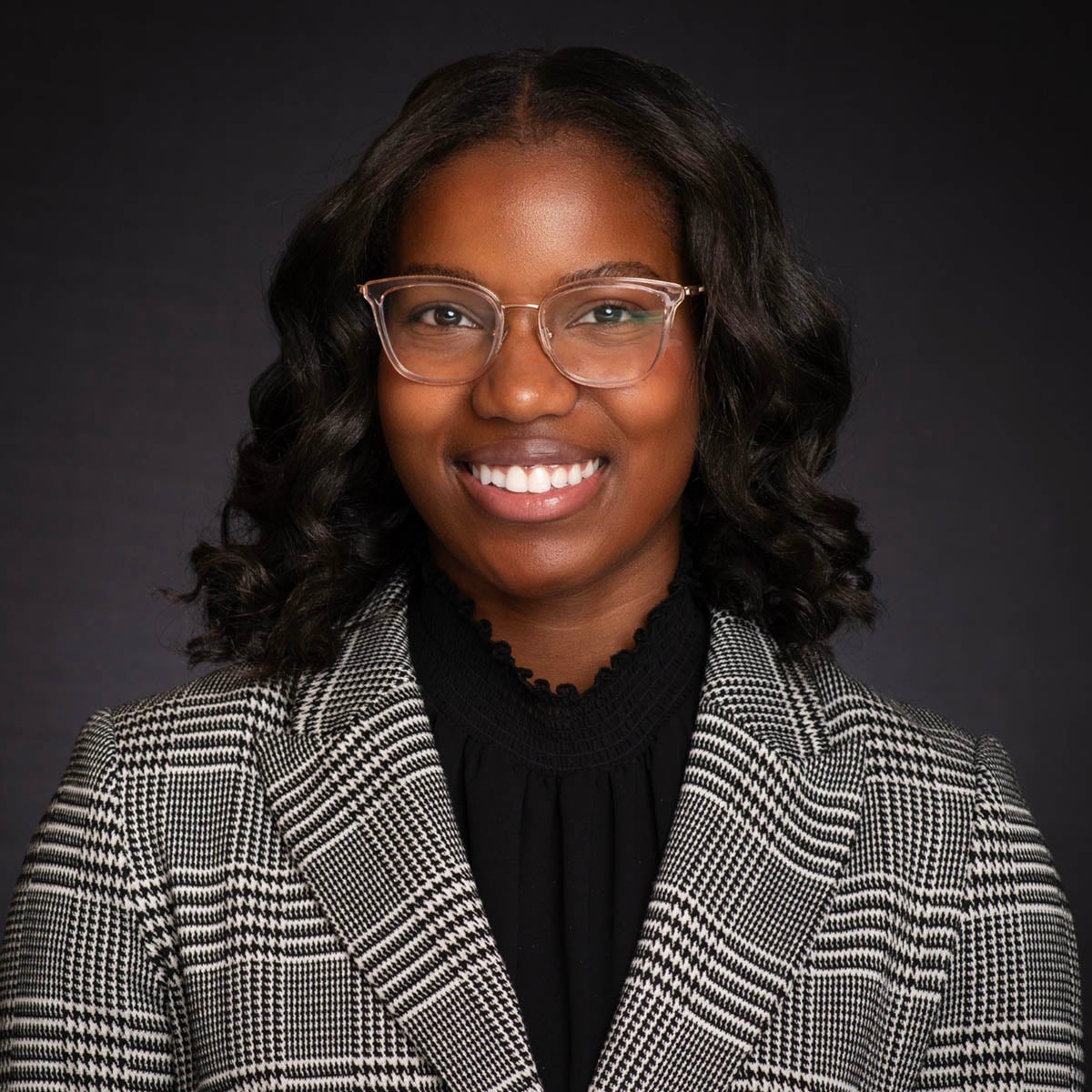
“One memorable thing for me was that the head of the precinct was pretty open with all the poll watchers,” she says. “He thought it was important to tell us exactly how they were running the process, what to expect, and why things were the way they were. I think that helped reduce the tension.”
Diggs, who volunteered at the Reno-Sparks Indian Colony, was happy to see a large turnout at her polling place. Part of her role was to ensure that the 170 voters who had joined the line by 7 p.m. — when the polls officially closed — could still cast their ballot, per state law.
“Once the last person voted, we all cheered, and it was a fun, communal experience,” she says.
But even sites that only saw a handful of voters were important, says Tomazic, because tribal members no longer had to travel long distances to participate. While some parts of her day were quiet, the people who showed up were enthusiastic, she adds. “We definitely had some voters who were very excited to be able to vote at a tribal building with poll workers that they knew that were from the tribe.”
For Dobson-Forsee, those moments between voters also offered a chance to connect with people she might not otherwise have met.
“When things were slow throughout the day, we got to sit and chat with the county election workers,” she says. “That was one of the more meaningful experience parts of this experience for me — the opportunity to get to know them and talk to them about their lives.”
Sun agrees. “I think that was probably the best part — getting to know people there and hearing their stories.”
In the end, the group says they encountered few serious problems and many happy voters, some of whom were casting a ballot for the very first time. For these Harvard Law volunteers, Election Day proved that the individual act of casting a ballot could also be an important opportunity for collaboration, community, and working together — regardless of the ultimate outcome.
“I tried to go in with a general sense of humility,” says Tomazic. “Remaining humble and respectful, but also mindful that that sometimes you just need that third party there to serve as an impartial eye to what’s happening, both for the current election, but also to address for future elections.”
Want to stay up to date with Harvard Law Today? Sign up for our weekly newsletter.
